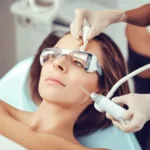3 January 2024
The global cosmetics industry is constantly evolving, with regulatory updates shaping the landscape for manufacturers, retailers, and consumers. In this article, we explore the latest developments in the cosmetics industry across different countries, including New Zealand, China, Taiwan, the United States, and Korea. From proposed changes to align with European regulations in New Zealand to the impact of the Modernisation of Cosmetics Regulation Act in the United States, these updates have far-reaching implications for the industry.
New Zealand: Aligning with European and ASEAN Regulations
New Zealand’s Environmental Protection Agency (EPA) is set to update the Cosmetic Products Group Standard to align with European regulations. The draft changes, expected to be published in January 2024, aim to ensure that New Zealand remains aligned with key export markets such as Europe and the ASEAN region. However, certain exceptions, such as the listing of banned allergens on labels, will not be implemented to accommodate products from other countries that do not have such requirements.
China: Strengthening Supervision and Streamlining Regulatory Processes
China’s National Medical Products Administration (NMPA) has increased its supervision over the cosmetics market. Cosmetic registrants and notifiers in China will be required to provide safety information documents for all ingredients used in product formulas starting from January 1, 2024. This requirement aims to enhance product safety and streamline the registration and notification process. Additionally, China has adopted the Convention of Abolishing the Requirement of Legalisation for Foreign Public Documents, simplifying the importation process for cosmetics and reducing the need for notarization and consular legalization.
Taiwan: Reclassification of Specific Purpose Cosmetics
Taiwan’s Food and Drug Administration (TFDA) has announced a reclassification of specific purpose cosmetics as general cosmetics starting from July 1, 2024. This change will shift the pre-market obligation for specific purpose cosmetics from registration to a notification process, accompanied by the establishment of a product information file (PIF). The TFDA has revised guidance documents to ensure compliance with the updated regulations and facilitate a smooth transition for the cosmetic industry.
United States: The Modernisation of Cosmetics Regulation Act (MoCRA)
The Modernisation of Cosmetics Regulation Act, which amends the Federal Food, Drug, and Cosmetic Act, represents the first update to US cosmetics law since 1938. The regulation expands the authority of the US Food and Drug Administration (FDA) and requires both US and foreign cosmetic facilities to register with the FDA. The compliance deadline for MoCRA’s product listing and cosmetic manufacturing facility registration has been extended to July 1, 2024. Further updates, including fragrance allergen labeling requirements and a proposed PFAS ban, are expected in the coming months.
Korea: Enhancing Cosmetic Safety Assessment
Korea is set to enhance its rules around cosmetic safety assessment, following the lead of the EU, China, and the US. The Ministry of Food and Drug Safety (MFDS) is preparing a legislation draft that is likely to be implemented in 2024 or 2025. The new regulations are expected to follow the structure of the EU’s cosmetic product notification portal (CPNP) and will require companies to keep safety assessment reports and submit them to authorities upon request. This change will impact multinational companies as well as small to medium-sized cosmetic firms.
The Rise of Greenwashing: Scrutiny on Sustainability Claims
The cosmetics industry is facing increased scrutiny on sustainability claims and greenwashing. Europe is leading the way with planned changes to prevent misleading environmental claims. Countries like Australia are also taking steps to regulate environmental and sustainability claims. The focus on sustainability is expected to continue, with more countries adopting regulations to ensure transparency and accountability in the cosmetics industry.
Conclusion:
Regulatory updates in the global cosmetics industry are shaping the way manufacturers, retailers, and consumers engage with beauty and personal care products. From aligning with international standards and streamlining regulatory processes to enhancing safety assessment and addressing greenwashing, these updates reflect the industry’s commitment to product safety, transparency, and sustainability. As the industry evolves, stakeholders must stay informed and adapt to these changes to ensure compliance and meet consumer expectations.



